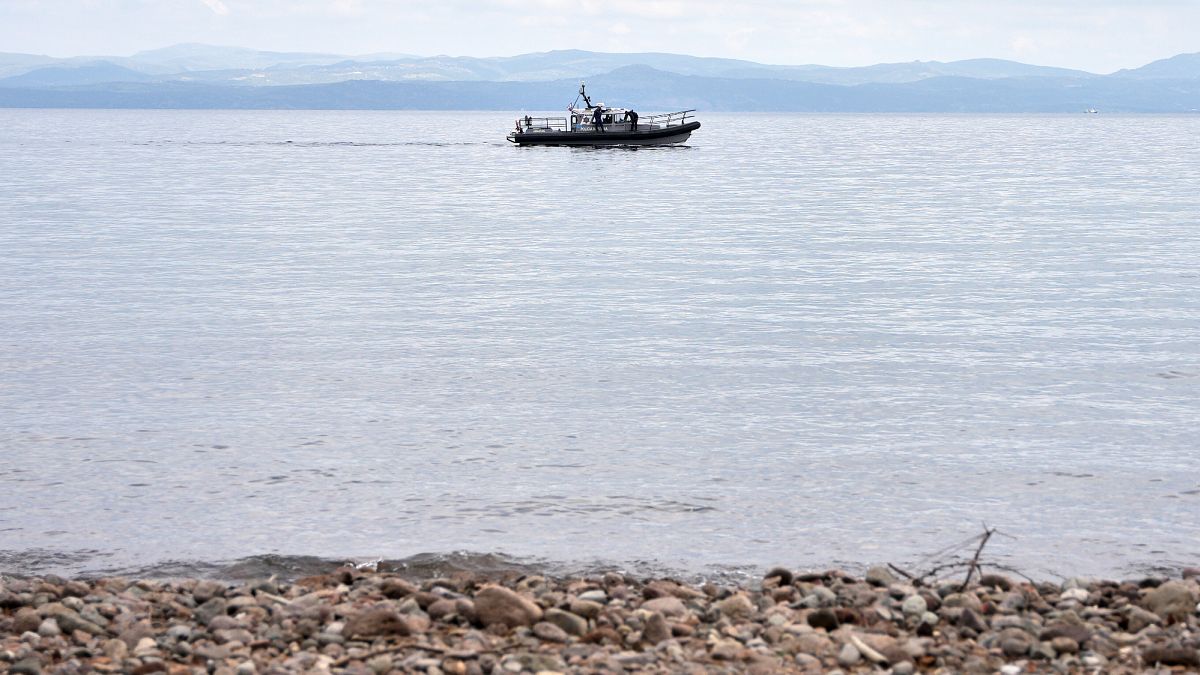Alaska
Engagement Events Set For SIX in Alaska

Broadway Alaska and SIX The Musical have announced the royal treatment Alaskans will experience when SIX The Musical arrives February 14th! Broadway Alaska will offer the following engagement opportunities for Alaskans while SIX is at the Performing Arts Center:
- 2.14.2024: OPENING NIGHT of SIX at the Performing Arts Center! Photobooth and other special events!
- 2.15.2024: Student Group Matinee featuring a Q&A with SIX cast members immediately proceeding the performance. Available to all students!
- 2.15 and 2.22: BOGO Thursday Matinee Performances! Buy one get ticket, get one for free! PLUS Crush will have lunch available for purchase.
- 2.15.2024: 7:00pm PRESS NIGHT. Save the Date!
- 2.17.2024: Broadway Alaska brings SIX to the TREND Alaska Fashion show to benefit Victims for Justice.
- 2.21.2024: Broadway Alaska, SIX and GCI team up to provide a live stream webinar to all interested classrooms in Alaska! Featuring cast and production members from SIX.
- AFFINITY Nights! Broadway Alaska will feature special ticket prices and perks for select groups while SIX is performing. Learn more here: Affinity Group Offers :: Alaska Center for the Performing Arts (alaskapac.org)
- Community Business Partners: Businesses across Anchorage are committed to enhancing Alaska’s experience of SIX! Enjoy special drinks and desserts at the following restaurant: Bernie’s, Tequila 61, ORSO, Broken Blender and Crush! And Clothesline Consignment has curated SIX outfits to peruse!
- INCREASED ACCESS: Broadway Alaska is offering $29 Student Tickets, $49 Educator Tickets and a SIX Lottery to ensure Alaskans are able to join us in the theatre! https://alaskapac.org/events/broadway/groups-and-promotions
About Six
Tickets for the Tony Award®-Winning electrifying new musical phenomenon SIX by Tony Award®-winners Toby Marlow and Lucy Moss are on sale NOW at https://cloud.broadwayworld.com/rec/ticketclick.cfm?fromlink=2291798®id=113&articlelink=https%3A%2F%2Fcentertix.com%2F?utm_source=BWW2022&utm_medium=referral&utm_campaign=article&utm_content=bottombuybutton1.
The cast features Gerianne Pérez as Catherine of Aragon, Zan Berube as Anne Boleyn, Amina Faye as Jane Seymour, Terica Marie as Anna of Cleves, Aline Mayagoitia as Katherine Howard, and Adriana Scalice as Catherine Parr. The cast also includes Aryn Bohannon, Wesley Carpenter, Jana Larell Glover, Taylor Pearlstein, Cassie Silva and Kelly Denice Taylor. All casting is subject to change.
From Tudor Queens to Pop Icons, the SIX wives of Henry VIII take the microphone to remix five hundred years of historical heartbreak into a Euphoric Celebration of 21st century girl power! This new original musical is the global sensation that everyone is losing their head over!
SIX won 23 awards in the 2021/2022 Broadway season, including the Tony Award® for Best Original Score (Music and Lyrics) and the Outer Critics Circle Award for Best Musical.
The SIX: LIVE ON OPENING NIGHT Broadway album debuted at Number 1 on the Billboard cast album charts and surpassed 6 Million streams in its first month.
SIX is co-directed by Lucy Moss and Jamie Armitage, featuring choreography by Carrie-Anne Ingrouille. The design team includes Emma Bailey (Set Design), Tony Award®-winner Gabriella Slade (Costume Design), Paul Gatehouse (Sound Design), and Tim Deiling (Lighting Design). The score features orchestrations by Tom Curran with music supervision and vocal arrangements by Joe Beighton and U.S. Music Supervision by Roberta Duchak. Casting is by Tara Rubin Casting / Peter Van Dam, CSA with original US casting by Bob Mason. Theater Matters is General Manager, Sam Levy is Associate Producer and Lucas McMahon is U.S. Executive Producer.
SIX is produced in the United States by Kenny Wax, Wendy & Andy Barnes, George Stiles, and Kevin McCollum.
Toby Marlow and Lucy Moss devised the original concept and started writing SIX when they were students at Cambridge University in early 2017. It was first presented as the Cambridge University Musical Theatre Society’s submission to the Edinburgh Festival Fringe later that year, playing a one-month run and featuring student actors. SIX went on to get picked up by UK Producers and a new production was mounted, with professional actors and a predominantly new creative team, at the Norwich Playhouse and then again at Edinburgh Festival in 2018. A limited engagement at the Arts Theatre in London garnered the WhatsOnStage Award for Best Off-West End Production and the show toured the UK in the autumn of 2018 before returning to the Arts Theatre and subsequently the Lyric Theatre on Shaftesbury Avenue. SIX is currently playing an open-ended run at the Vaudeville Theatre on the Strand. SIX earned five 2019 Laurence Olivier Award nominations, including Best New Musical.
Join Team BroadwayWorld
Are you an avid theatergoer in Anchorage? We’re looking for people like you to share your thoughts and insights with our readers. Team BroadwayWorld members get access to shows to review, conduct interviews with artists, and the opportunity to meet and network with fellow theatre lovers and arts workers.
Interested? Learn more here.

Alaska
Alaska Department of Health cuts 30 positions, dissolves a public health program after federal funding cuts
The Alaska Department of Health is cutting 30 positions and shuttering a program meant to improve public health access across the state after the Trump administration cut more than $50 million in previously awarded federal funding.
A dozen federal grants to the Alaska Department of Health were terminated effective March 24 amid broad funding cuts, department spokesperson Shirley Sakaye confirmed Thursday, including funds awarded in response to the COVID-19 pandemic that were set to expire by 2027.
“Funds were utilized for time-limited projects that increased public health infrastructure and capacity,” Sakaye said by email.
As a result of the cuts, the department is dissolving the Healthy and Equitable Communities unit, which was launched in 2021 in response to health access and outcome disparities across the state that came into sharp relief during the pandemic.
The unit focused on “creating partnerships across Alaska to ensure that the conditions in which Alaskans live, work and play support opportunities to lead healthy lives,” according to a department webpage that was removed earlier this week. The program had staff in Anchorage, the Mat-Su region, Fairbanks, Bethel, Nome, Homer, Kodiak, Juneau and Ketchikan.
Now, partnerships established by the department are set to be abruptly discontinued, leading to what could be significant impacts, including in rural communities where access to health services is limited.
The 12 canceled grants originally amounted to more than $185 million, of which $135 million had already been expended, according to a list of canceled grants maintained by the federal Department of Health and Human Services. The state lost out on $50 million in future funding, but because of the sudden cancellation of the grants, the state may also lose out on improvements it was planning to make through previous expenditures because projects will be abandoned midway.
Among the terminated grants was a $96 million award toward improving epidemiology and laboratory capacity for preventing and controlling emerging infectious diseases. More than $24 million from that grant had yet to be spent and was canceled.
The cancellation also impacted a $40 million award for immunization and vaccines for children, of which $16 million had not yet been spent when the grants were canceled.
Alaska has seen a drop in vaccination rates among children in recent years. For example, a decade ago, about 94% of kindergartners were vaccinated against measles, mumps and rubella. As of last year, that rate had dropped to 84%, according to data from the U.S. Centers for Disease Control and Prevention.
The grant cancellations also impacted more than $7 million for a “national initiative to address COVID-19 health disparities among populations at high-risk and underserved, including racial and ethnic minority populations and rural communities,” administered by the Centers for Disease Control and Prevention.
More than $1 million out of a $4.7 million grant to address substance use was canceled. Roughly $700,000 in mental health grant funding was canceled.
Julie Cleaton, policy committee chair for the Alaska Public Health Association, said the association opposes the cuts to public health funding.
“We’ve always been underfunded, and this will not help. The state is already feeling the impact of these federal cuts,” Cleaton said in an interview Thursday.
Cleaton works for the state Department of Health as a data analyst for the Alaska Cancer Registry but was not speaking on behalf of the state, she said.
“The COVID-19 pandemic made it clear to a lot of people in government that we weren’t well-prepared. We’re not working off of a healthy baseline population, and there are a lot of improvements to be made there. So there was some funding that went out because of COVID-19, but a lot of it was to prevent future outbreaks, to improve our systems and to get everyone healthier, not just specifically for COVID-19, but for everything,” Cleaton said.
Cleaton said that the Healthy and Equitable Communities unit — now disbanded — had been “positioned in several communities across the state to try and get to more rural locations that don’t usually see enough public services.”
“We’ve been trying to work to help everyone get on a more even footing, health-wise, and this will just be a setback to that,” she said.
Ingrid Stevens, former president of the Alaska Public Health Association, said that Alaska will also be impacted by other cuts to the U.S. Department of Health and Human Services.
“A primary concern is the supply of data,” she said.
Stevens, who works in the Alaska tribal health system, said that Alaska could lose critical data that the federal government collects and shares with states through surveys, including ones pertaining to mental health and substance abuse.
“Those national bodies are the ones that give us guidance. They do all the research and they relay that down to the states so states can implement that research to help improve public health,” said Cleaton. “If we don’t have that national guidance, who’s going to do that research?”
Cleaton said that impacts of the loss of public health programming may not be felt immediately, but their long-term effects could be significant.
“We’ve been seeing declining vaccination rates for several years — and now we’re getting measles outbreaks. So it may take time to really feel the impact, but it will hurt what we do,” Cleaton said.
‘A general sense of anxiety’
Broad cuts to federal spending — led by tech billionaire Elon Musk — are set to have a disproportionate impact on Alaska, which receives a large share of federal funding per capita, economists, union leaders and nonprofit leaders have said.
Already, 230 Alaskans in the federal workforce had filed for unemployment insurance since February, when mass firings began, according to Alaska’s Director of Employment and Training Services Paloma Harbour.
But this is likely the first time that Alaska state employees have lost their jobs due to federal funding cuts under the current Trump administration, according to Heidi Drygas, director of the Alaska State Employees Association, a union representing most state employees, who said the terminations impacted both permanent and non-permanent positions.
Department of Health staff were laid off in communities including Anchorage, Juneau, Wasilla, Fairbanks, Homer, Valdez and Petersburg, she said.
Drygas said the Department of Health was proactive in involving the Alaska Department of Labor and Workforce Development to help impacted employees find other jobs with the state, which has a high vacancy rate across departments.
But Drygas said that state employees are anxious — not just about layoffs that occurred this week but about potential imminent impacts of federal funding cuts, including future layoffs.
“There is a general sense of anxiety,” said Drygas. “Especially with employees that work under federal grants or they have federal counterparts that they work with on a daily basis.”
“What we’re worried about is what comes next,” she added. “It’s just a really difficult time for state employees.”
Drygas said she anticipates future impacts, and hopes Alaska’s congressional delegation will do “whatever they can to protect our federal funding.”
Alaska’s two Republican U.S. senators said earlier this week that they were in touch with the Trump administration over the funding cuts to the Department of Health.
U.S. Sen. Dan Sullivan has been “working with state health officials to gather more information about how these reorganization efforts impact Alaska,” spokesperson Amanda Coyne said Wednesday.
Coyne said that Sullivan had “an extended phone call” with Trump’s Health Secretary Robert F. Kennedy Jr., which “focused on extending some of the grants at issue, and on larger solutions as part of HHS’s reorganization efforts that would address Alaska’s unique health care needs and challenges.”
None of the canceled grants have since been reinstated, the Alaska Department of Health confirmed late Thursday.
U.S. Sen. Lisa Murkowski is “tracking the grant funding cuts, and her office is engaging with the administration,” spokesperson Joe Plesha said. “The sudden loss of funding and the loss of these positions will make a real impact in Alaska, and the Senator is focused on finding solutions to continue the progress that has been made with these funds.”
The office of U.S. Rep. Nick Begich III “is monitoring these funding cuts and the direct impacts on Alaskans,” spokesperson Silver Prout said in a written statement.
Alaska
The Alaskan island on the front lines of the Arctic scramble

By Jacob Judah
Edward Soolook is a 58-year-old man with chipped front teeth and a pencil-thin moustache who lives in the most remote place in America. A self-proclaimed alcoholic who often sleeps in, he reckons he has suffered from PTSD ever since he came home from the war in Iraq. He has a bad back, suffers from recurring nightmares about World War III and keeps an arsenal of rifles hanging in the entrance to his tiny wooden cabin, which he uses to hunt walruses, seals and polar bears.
Alaska
The great hollow of Minto Flats

MINTO FLATS — Within a vast bowl bordered by blue hills, I rolled along on a trail scratched into ice by snowmachines. That deceptive basin — Minto Flats — is big enough to swallow Denali, if the big mountain happened to stumble in here and fall.
Just over a ridge west of Fairbanks, Minto Flats is an oval of swampy lowlands larger than Anchorage. The flats are a quiet expanse that has for longer than anyone’s memory produced moose, beavers and northern pike for local villagers. It has also intrigued oil and gas developers, as well as seismologists who know the self-healing surface hides the scars of large earthquakes.
As the sun rose over the flats and reflected off the wind sculpted snow, teams of sled dogs and their drivers passed me and my fatbike. I was one of three human-powered racers in a contest called the T-Dog. Competitors that day raced from the village of Minto — perched on a hill to the west of the flats — to Fairbanks, 100 miles away.
I signed up for the T-Dog to do something new, and to draw a new line on my map that crossed the flats.
Instead of dog mushers, a few bikers and a skier, in a few months Minto Flats will be loud with quacks, honks and splashes. Scientists once calculated 213 ducks per square mile existed here during one spring/summer breeding season.
“Minto Flats constitutes one of the highest quality waterfowl nesting and staging habitats in Alaska, and possibly in North America,” wrote Alaska Department of Fish and Game biologists in the Minto Flats State Game Refuge Management Plan in 1992.
In 1961, a geologist named David Barnes of the U.S. Geological Survey in Menlo Park, California, described something extraordinary about the sprawling wetland: The force of gravity is not as strong in the center of Minto Flats as it is in the surrounding hills. That “gravity low,” achieved in part because the Earth isn’t a perfect sphere, means that the force holding dogsled runners to the snow there is a little weaker than on the ridges. It also means that Minto Flats is sinking.
Scientists have calculated that the descending basin of Minto Flats is 56 miles long, 7.5 miles wide and 4.5 miles deep. That would allow the flats (if you scooped out all the muck) to swallow Denali, at 20,310 feet a little less than four miles tall.
The basin, however, is now full. Over millions of years, rivers have pumped in ground-up rock, filling Minto Flats with sediment and amplifying the effects of big earthquakes. Those include magnitude 7.2’s in both 1937 and 1947 and a 6 felt by many Fairbanks residents in 1995.
Carl Tape of the University of Alaska Fairbanks Geophysical Institute and his colleagues installed seismometers near Minto village and in spots along the adjacent Tanana River during the last 10 years. They have determined that earthquakes in Minto Flats and the larger Nenana Basin (of which it is a part) feel stronger to the observer than earthquakes that shake people standing on more solid ground.
That intensified earthquake shaking is typical of towns and cities built upon sedimentary basins, among them Tokyo, San Francisco and Los Angeles.
When the faults beneath Minto Flats slip, Fairbanks can rattle with a magnitude 7 earthquake. Other population centers adjacent to the flats are Minto village (150 people counted in the 2020 census), Manley Hot Springs (169) and Nenana (380).
In the middle of the flats in March, there seemed to be no one except those traversing it along a blue/white line of trail. Besides that big-sky feeling a person gets while driving across South Dakota, another sensation came to mind when biking Minto Flats: They are nice and flat.
It also helped that the snowmachine trails were hard as pavement. And that the 50 miles from Minto to the town of Nenana features a 40-foot elevation drop. From there, it’s slightly uphill to Fairbanks upon trails pressed into the frozen Tanana River by a few hundred Iditarod dogs in early March.
In 100-plus miles from the village of Minto to my home (to which I pedaled), the total elevation gain was just 56 feet. Add to that the imperceptible boost of riding through the flats where gravity wasn’t giving its best shot, I had no excuses not to make it home.
-

 News1 week ago
News1 week agoTrump Is Trying to Gain More Power Over Elections. Is His Effort Legal?
-

 World1 week ago
World1 week agoNo, Norway and Sweden haven't banned digital transactions
-

 News1 week ago
News1 week agoCompanies Pull Back From Pride Events as Trump Targets D.E.I.
-

 News1 week ago
News1 week agoWednesday briefing: Just how bad was the White House accidentally leaking military plans over Signal?
-

 Technology1 week ago
Technology1 week agoPorsche’s next Taycan gets an infotainment upgrade — but no new CarPlay
-

 Politics1 week ago
Politics1 week agoTexas DOGE bill passes Senate to streamline state regulations
-

 World1 week ago
World1 week agoUS Army says vehicle of four missing soldiers found in Lithuania
-

 News1 week ago
News1 week agoFederal judge who drew Trump's anger picks up new case against administration


















